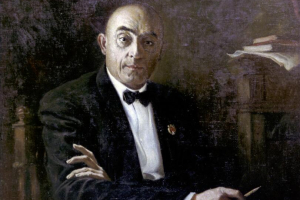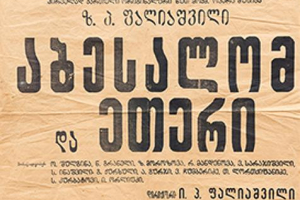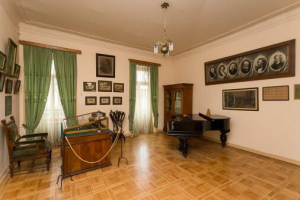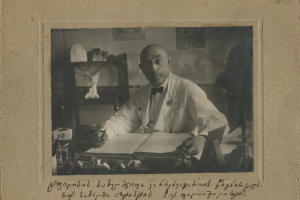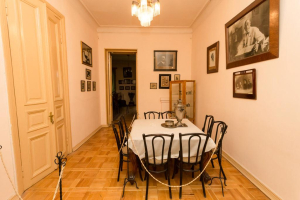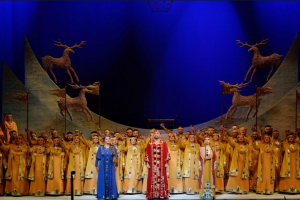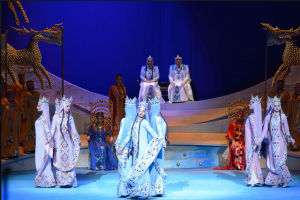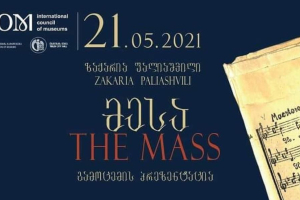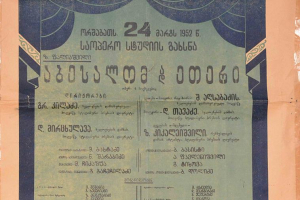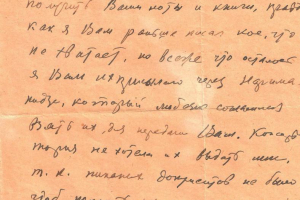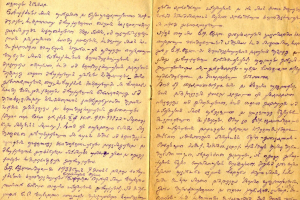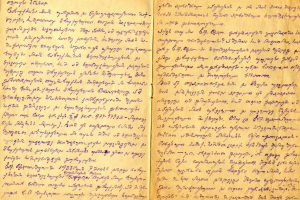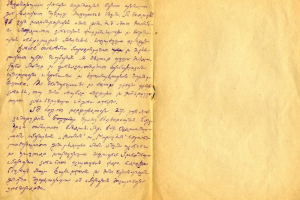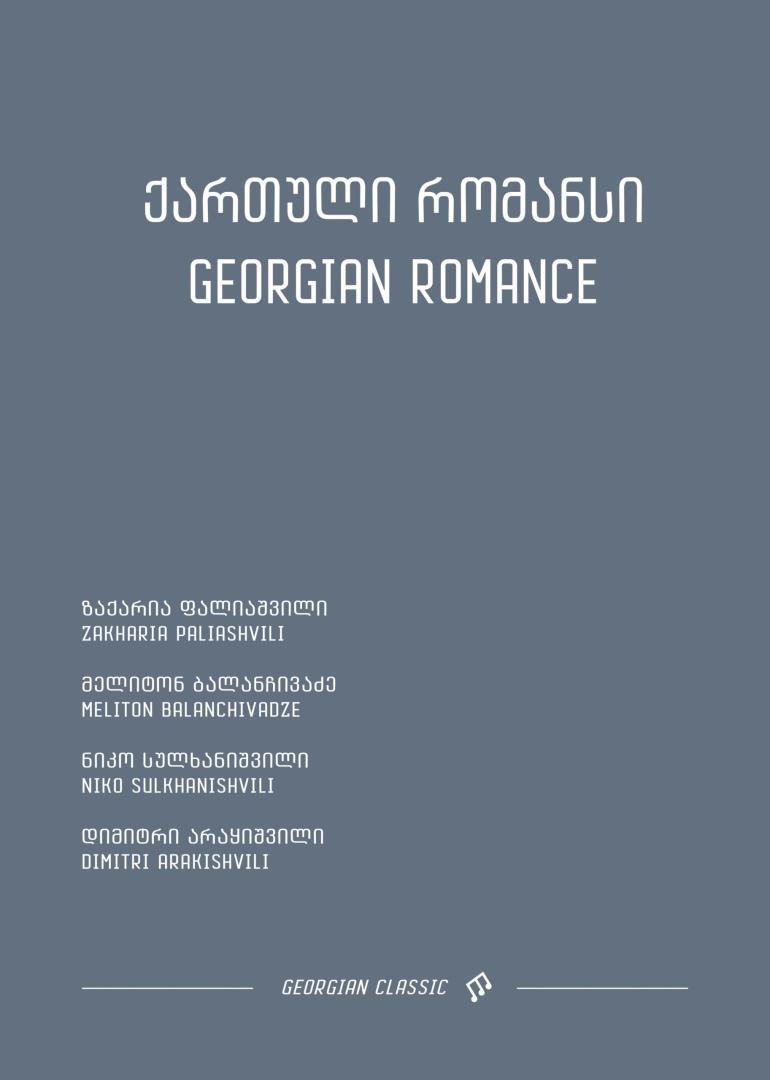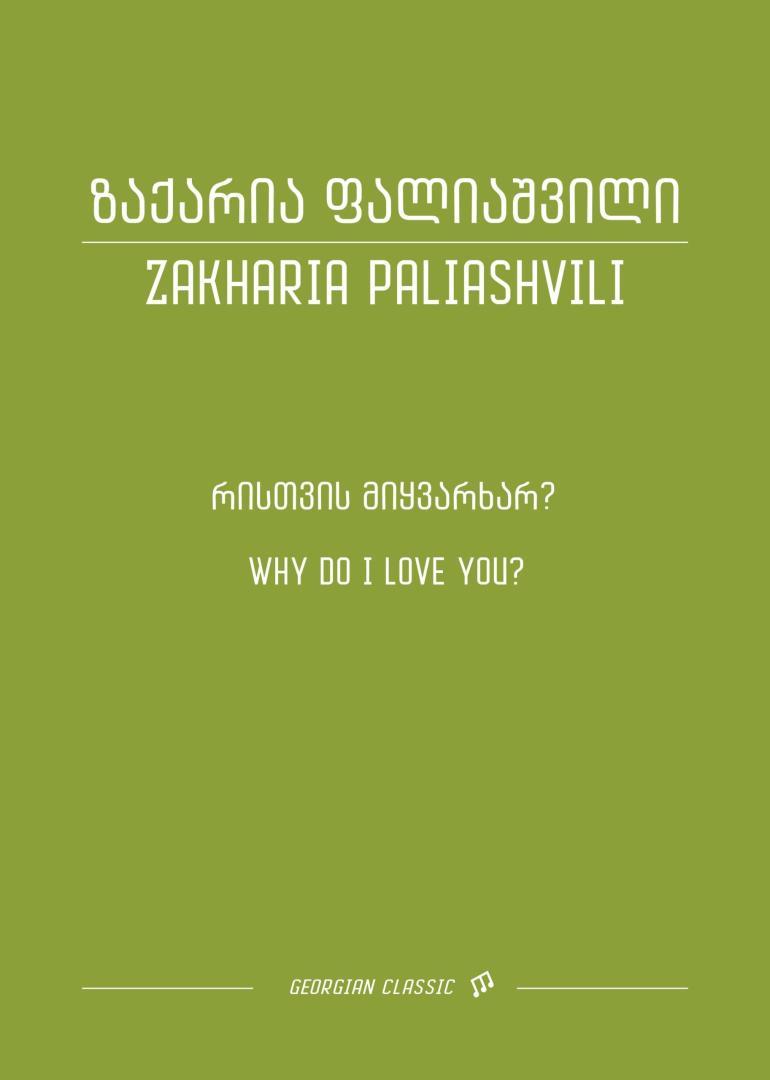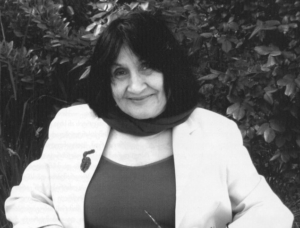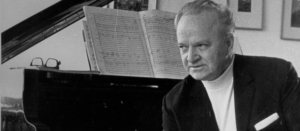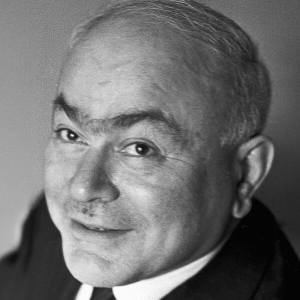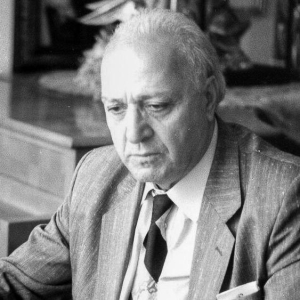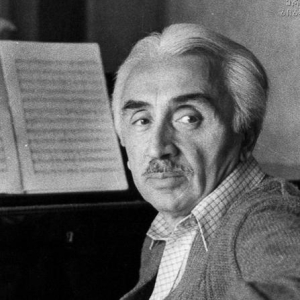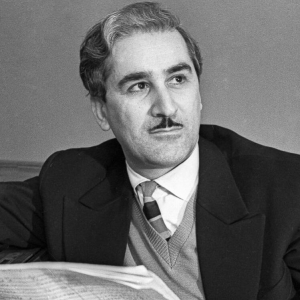Zakharia
Paliashvili
Zakharia Paliashvili
(1871 – 1933)
Zakharia Paliashvili – Georgian Composer, Conductor, Teacher, Public Figure. People’s Artist of the Georgian SSR (1925). Classicist of the Georgian National School of Composition. The founder of the Georgian epic and lyrical–dramatic opera genre.
Date of birth – August 16, 1871
Place of birth – St. Kut’aisi Georgia
Date of death – October 6, 1933
Place of death – Tbilisi, Georgia
Buried, in the Garden of the Z. Paliashvili Opera and Ballet Theater – Tbilisi
BIOGRAPHICAL DATA
He received his initial musical education under the guidance of his older brother Ivan in Kutaisi. He studied piano and organ with Felix Misandar, a well–known musician at the time, at St. Mary’s Assumption Catholic Church. He sang in the choir of the same church.
Since 1887 – in Tbilisi choirmaster of Agniashvili’s choir;
1891 – Continues his studies at the Tbilisi Music School (Valtorna);
1895 – 1899 – Continues to study in the same institution in theoretical disciplines;
Since 1896, Georgian folk songs have been recorded and processed
From 1896 – he starts recording and processing Georgian folk songs. He engages in this activity until the end of his life;
1896 – Creates his first works;
1900–1903 – Continues to study at the Moscow Conservatory, S. in Taneev’s class; In the same period, he formed a choir of Georgian students in Moscow and managed Georgian folk music evenings;
1903 – Returns to Georgia and begins intensive creative, pedagogical and performing work (organist, conductor).
worked at a music school and a Georgian gymnasium;
1905 – Actively participates in the founding of the “Georgian Philharmonic Society”;
1905 – Founded choir and orchestra;
1905 – In Moscow was published Z. Paliashvili’s first romances;
1908–1917 – Head of the “Georgian Philharmonic Society” music school;
1908–1917 – An active member of the “Society for Managing Operas in the Georgian Language”;
1908–1917 – He conducted performances in Tbilisi Opera and Ballet Theater (currently Zakharia Paliashvili State Theater of Opera and Ballet): Zh. Bizet “Carmen”, J. Puccini “Tosca”…
Since 1918 – professor of Tbilisi Conservatory;
1919, 1923, 1929–1932 – Director of Tbilisi Conservatory;
1919.21.02 – Premiere of the opera “Absalom and Ether”;
- 19. 12 – premiere of the opera “Daisy”;
Filmography about Zakharia Paliashvili and his work
1949 – “Zakharia Paliashvili” – director – Sh. Martashvili, M. Chiaurel
1970 – “Zakharia Paliashvili” – director – d. Kobakhidze
1971 – “Zakharia Paliashvili” – director – V. Valishvili
1956 – “Song of Ether” – director – Siko Dolidze
1966 – “Absalom and Ether” – film–opera – director – Leo Esakia
1971 – “Daisi” – film–opera – director – Nikoloz Sanishvili
AWARDS AND RECOGNITION
1925 – People’s Artist of Georgia;
Since 1937, Tbilisi Opera and Ballet Academic Theater has been named after him
From 1937 to the present day – the Tbilisi Opera and Ballet season opens with Zakharia Paliashvili’s opera “Abesalom and Eter”
Since 1971, the award named after Paliashvili has been established
Zakharia Paliashvili
(1871 – 1933)
SELECTED WORKS
MUSIC FOR THE THEATER
1910 – 1919 – “Absalom And Eteri” – Opera in 4 Acts – (libretto – P. Mirianashvili)
Film-Opera “Absalom And Eteri” – Shot in 1966 – Director – Leo Esakia
1921 – 1923 – “Daici” (“Sunset”) – Opera in 3 Acts – (libretto – V. Gunia)
Film-Opera “Daici” (“Sunset”) – Shot In 1971 – Director – Nikoloz Sanishvili
1926 – 1927 – “Latavra” – Opera in 5 Acts with a Prologue – (libretto – S. Shanshiashvili)
VOCAL AND VOCAL-INSTRUMENTAL MUSIC
1898 – “Georgian Liturgy” – for Mixed Choir – (2010 – Premiere – USA, Washington – Choirmaster – Frederick Binkholder)
1898 – “Mass” – (The First Sample Of This Genre In Georgian Music)
1927 – “Ceremonial Cantata “For The Tenth Anniversary Of The October Revolution” – (text – S. Shanshiashvili)
HE COLLECTED AND PROCESSED ABOUT 400 GEORGIAN FOLK SONGS
ABOUT 40 GEORGIAN FOLK SONGS WERE RECORDED WITH A PHONOGRAPH
AUTHOR OF MANY ROMANCES. BETWEEN THEM:
“Nana, shvilo” (“Sleep my Baby”), “Georgian Nana”, “Why do I love you?” – (text – I. Chavchavadze)
“I Loved”, “Regret”, “Don’t Be a Hypocrite” – (text – I. Grishashvili)
“A New Spirit” – (text – D. Tumanishvili)
Zakharia Paliashvili
(1871 – 1933)
Zakharia Paliashvili is a well-known Georgian professional music composer. The long journey that Georgian compositional art provides to the globe with its unique form begins with his work.
According to musicologist Gulbat Toradze, “together with the distinctive folk polyphony and great creative monuments, Shota Rustaveli’s poetry “Vephkhistkaosani” (The Knight in the Panther’s Skin) – the operas “Abesalom and Eteri” and “Daisi” (Dusk) by Zakharia Paliashvili are also full of light. It should be mentioned that the premiere of Zakharia Paliashvili’s “Abesalom and Ether” became a day of national celebration, and that this date (February 21, 1919) became one of the most significant events in Georgian culture history.
Like his fellow Georgian composers, Zakharia Paliashvili developed the first unique examples in the genre of romance. These romances are still popular today because of their artistic value. Additionally, it is essential that these works reflect the composer’s search for musical style.
Most importantly, Z. Paliashvili was the first person to try and combine the distinctive patterns of Georgian folk and European music in the genre of romance. According to the romances, the composer became attracted to urban, as it was referred to, “Tiflisi folklore,” particularly its eastern branch, at the beginning of his creative career. “Akhal Agnago Sulo,” one of Paliashvili’s early works, was inspired by Tbilisi folklore. The work is based on a poem by 19th century Georgian poet Dimitri Tumanishvili.
The musical starting point of the romance is a fragment of Tiflis folklore, a monophonic song “Akhalo” based on the same story that was so popular that it was mentioned by Alexander Pushkin in his “Journey to Arzrum.”
The later romance “Why do I love you” is an example of this style of composing, based on Ilia Chavchavadze’s poetry of the same name. The composer dedicated this romance, as well as operas “Daisy” (Dusk) and “Latavra,” to his female friend, vocalist Nadezhda Abashidze-Buzogli. It should be noticed that this romance is similar to pieces of Paliashvili’s opera “Daisy” (Dusk), Kiazo’s aria “Sulo boroto” (Evil soul), and Tsangala’s song.
The composer develops a typical lyrical, satirical character, an oriental tone for “Tbilisi folklore” with melismatic elements, interval structure, the use of the extended second, and the frequency of chromatic movements in the mentioned romances. The romance “Nana Shvilo,” also known as “Georgian song,” based on the poetry by Ilia Chavchavadze, is Zakharia Paliashvili’s first attempt to fuse elements of national folk, peasant song, and classical music.
The tale is dedicated to the composer’s friend, Georgian history scientist and Tbilisi State University founder Ivane Javakhishvili. Paliashvili was referring to the Georgian traditional song “Netamtsa Momklatsa” (I wish it would kill me), which composer Dimitri Arakishvili had previously recorded in the village of Guria, in Western Georgia. The composition is similar to the genre of Georgian folk song, “Nana,” with its melodic structure and the enhancing effect of the organ part, and with its piano accompaniment, it confirms its connection with European classical music.
According to musicologist Pavle Khuchua, “there are many things in this romance that are directly related to the composer’s later works, the musical language of “Absalom and Ether” in terms of intonation, rhythm, and harmony.”
In the romance “Nana” (based on a work by Russian poet Mikhail Lermontov), which is also dedicated to Nadezhda Abashidze-Buzogli, there are harmonic changes typical of Georgian folklore music. The romances “I loved you” and “Don’t be a liar” are based on the poetry of Ioseb Grishashvili. Both romances were dedicated to the composer’s brother, Ivane Paliashvili, one of Georgia’s first professional conductors. “I loved” is an outstanding example of a lyrical romance. A work in which the hero’s inner sentiments are expressed. The composer’s operas might be considered as prior to the artistic world since they strengthen the psychological foundation. The light composition “Don’t be a liar” draws attention to the Georgian folk instrument, by imitating Gudastviri (Bagpipe) and sounding similar to the folk poetic-musical form associated with – shairi (improvised verse). These approaches would be used frequently in the opera “Daisy” (Dusk) later on. “Don’t be a liar” is similar to “Abesalom” fragments in its vocal line circulation and cadence variation.
Recently, there has been an increase of interest in Paliashvili’s romances. One example of this genre is the leitmotif of an exceptional feature-documentary film about him. Expressions are added to the composer’s portrait by sounding romances.
Despite the fact that the romance genre is essential to the composer’s creativeness, the history of the national compositional school, and Georgian culture in general – his name is associated with the operas “Absalom and Eteri” and “Daisy.” These brilliant works mark an unachievable aesthetic peak in the Georgian opera genre and are widely regarded as a real public achievement.
Musicologist
Tamar Tsulukidze
English Language Translator
Tamar Kharadze




